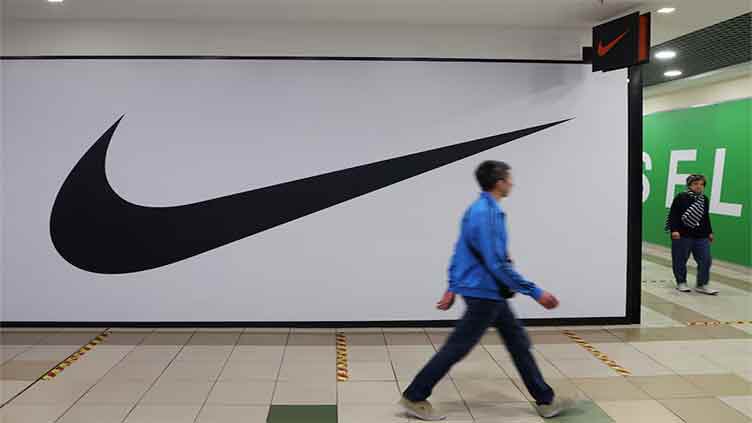The Dutchman who gets Nike and Lego into wartime Russia's stores

Business
The Dutchman who gets Nike and Lego into wartime Russia’s stores
PARIS (Reuters) - Nike stopped selling its sportswear to Russia soon after Moscow launched its full-scale invasion of Ukraine over two years ago. But that hasn’t stopped footballstore.ru, an online sports retailer owned by Russia’s Zenit soccer club.
Among the dozens of Nike-branded items the site offers are the U.S. sportswear maker’s Phantom GT2 Elite soccer boots, for 29,999 roubles, or around $330.
The man who got these shoes to Russia is Wijnand Herinckx, a 40-year-old Dutch citizen who lives in Moscow. Since the conflict began, Herinckx has built a thriving business that provides Russian consumers with Western goods whose makers have pulled out of Russia.
“Nike does not want their products to be shipped to Russia,” Herinckx told Reuters in a video call from his office on the outskirts of Moscow, where shelves are stacked with boxes of Western branded footwear. But he added: “They are also not telling us not to do it.”
Both Nike opens new tab and Lego told Reuters they have not authorized Herinckx’s imports of their goods to Russia.
By examining customs data, corporate records and internal company documents, and by speaking to Herinckx himself, Reuters learned how his business obtains branded goods including Nike and Lego: It uses intermediaries with no apparent connection to Russia as buyers, then ships the goods to Russia – often via Turkey – and finally delivers them to retailers in Russia.
There are at least dozens of firms like Herinckx’s employing grey-market methods to get Western goods to Russia, according to a Reuters analysis of customs data. His operation shows how attempts by Western governments and brands to isolate Russia’s economy are crashing into a reality of global business: Where there’s demand, someone will meet it.
Western governments’ restrictions have mostly focused on industrial products that can be used to build weapons for Russia’s war machine. Such products are usually subject to US and European Union sanctions. Herinckx said his focus is on consumer goods not covered by sanctions. Reuters found no evidence that his firm was violating sanctions.
But companies like Herinckx’s are indirectly helping the Russian economy: Consumers can still buy foreign goods they’ve grown used to since the collapse of communism more than a generation ago. Customs data analyzed by Reuters showed, for example, the value of Nike products imported to Russia plummeted 81% in 2022 to $21 million, but rebounded in 2023 to at least $74 million.
The sportswear giant said it did not supply Herinckx’s firm or any associated businesses. “We no longer have any Nike-owned physical or digital retail operations in Russia,” it said in a statement. “We do not ship any product to Russia, nor do we authorize any marketplace partners to distribute product there.” It also said it has a dedicated team to investigate unauthorized distribution channels. A spokesperson didn’t respond to questions about how the products were reaching Russia.
In mid 2022, following Moscow’s invasion of Ukraine, Nike announced it was exiting Russia and Lego said it was closing its Russian business.
As global brands halted sales or stopped exports over the invasion, Russia authorised businesses to import products from abroad without the trademark owner’s permission. Russia said its so-called parallel imports totalled more than $70 billion in the two years up to the end of 2023.
Some legal specialists say seeking recourse under Russian law would be challenging for Western brands, leaving few other legal options for brands trying to enforce intellectual property rights that are typically tied to the territory where the infringement took place.
The availability of Western brands lets Russian President Vladimir Putin “project a message that the war does not undermine the ‘normal life’ of the Russian middle class, ” said Sergei Guriev, a Russian economist who is provost at Paris’ Sciences Po university.
‘PROUD OF IT’
Herinckx’s Russian company employs 82 staff and forecasts revenues in 2024 of 35 million euros, or about $37 million, he said. Last year, it was $23.7 million, according to company accounts.
At the time of Russia’s 2022 invasion of Ukraine, Herinckx was working in the Moscow office of a German company, Hellmann Worldwide Logistics. According to Herinckx, he ran a team of more than 20 people inside Hellmann that served foreign companies who wanted to sell in Russia without setting up local operations.


